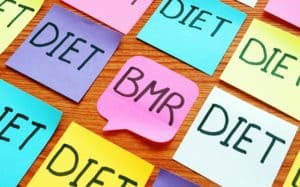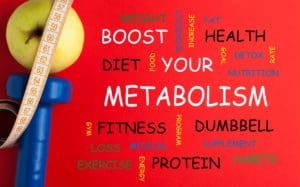Metabolic Adaptation Quick Links
- I’ve tried everything but I’m still not losing any weight
- Metabolic adaptation, part 2 – what happens in the body during metabolic adaptation.
- How to undo metabolic adaptation and fix your metabolism? 7 steps. Metabolic adaptation, part 3.
- 5 natural ways to activate the thyroid – even up to 80%!
- Blood test reveals the state of your metabolism.
- 5 Useful Habits That You Must Develop In 2021.
- Best Fitness Trends in 2021.
- How To Stay Motivated In 2021.
- Do These 3 Things In 2021 for Fitness.
I’ve Tried Everything But I’m Still Not Losing Any Weight – Slowed Metabolism Or Metabolic Adaptation, Part 1
Metabolic adaptation is a state where the body’s metabolism slows down to a level where losing weight based on caloric intake is constantly becoming more and more difficult, eventually becoming impossible.
“I’ve tried to lose weight but I’m not succeeding. My body must be adapting metabolically.”
If you are one of the many who has been thinking that this is happening to you, this article for you. Everyone who is starting their “weight loss project” needs advice on how to avoid damaging your metabolism.
Metabolic adaptation is a fact but also one of the terms that are used way too freely. It is a rare and complex concept.
Metabolic adaptation is a state where the body’s metabolism slows down to a level where losing weight based on caloric intake is constantly turning more and more difficult, eventually becoming impossible.
But why?
Metabolic disorder also distorts appetite.
Theoretically: if the difference between caloric intake and consumption is – 9000 kcal a week, a person should lose 1kg/2.2lb of weight a week (1 g of fat = 9 kcal). If a 100kg/220lb person reduces caloric intake to 9000 kcal for a week, does it mean that after 100 weeks there is nothing left anymore?
Your body’s main task is to ensure staying alive for as long as possible. It stores energy when it is available and conserves it when it is unavailable. As soon as we eat less than we consume, it sends a message to the body that “energy is scarcely available, so you should conserve it – because we don’t know who long this will last.”
Due to this weight loss is never a linear process. Typically, weight loss looks like this:
As you can see, the longer the energy deficiency lasts the slower the weight decreases. But what does this have to do with metabolic adaptation?
In metabolic adaptation, the metabolism of the body has taken use of long-lasting mechanisms to stay alive with a minimum amount of energy. Our bodies are super smart. They have been created to stay alive as long as possible, not to achieve the body of a fitness model.
Metabolic adaptation is often “diagnosed” very often and easily in situations where weight loss is not achieved. However, 4 out of 5 times it is something completely different.
[grwebform url=”https://app.getresponse.com/view_webform_v2.js?u=yhX3C&webforms_id=27445103″ css=”on” center=”off” center_margin=”200″/]
Metabolic adaptation is common for:
-
Yo-yo dieters
-
People who have lost weight by eating less without adding exercise
-
Women – Women usually avoid muscle mass – apparently for cultural reasons. We will get back to this later.
-
People who have lost weight the wrong way – by eating fewer carbohydrates and protein, where the one accelerates metabolism and the other retains muscle mass
-
People who have lost weight very quickly
-
Some illnesses (hypothyroidism in bad condition, eating disorders, a medication that slows metabolism – beta-blockers)
In the research it was noted that weight loss decreases the energy consumption of the body to 3-4 kcal/kg of fat-free body weight and even if the weight would increase to the same level as before the level of metabolism stays low.
For example, after the Biggest Loser Television Series, the weight of the contestants increased by about 41kg/90lbs and the metabolism rate stayed 700 kcal lower than in the beginning! (1, 2)
“But how do I know that I am experiencing metabolic adaptation or something else?”
There is no easy answer to this. Surely the state of metabolism could be accurately assessed using expensive medical research and methods, but if you are not a competitive athlete, these methods are quite unnecessary.
The easiest way to find out how the body consumes energy is to take a 2-week nutrition test.
- Count every gram of food and drink you have every day. Follow a similar formula for 2 weeks. Exercise just like before – if you did not exercise at all do not add anything, and if you exercised three times a week keep on going the same way.
- Weigh yourself daily. After 2 weeks you will see a trend – if your weight has stayed the same or decreased. If your weight is the same (not including small normal physiological changes) the situation is clear: consumption = caloric intake. If you have lost weight, do the following calculation:
Lost weight in kg x 7000 kcal (7000 kcal because the body rarely loses weight only from body fat, some of it is also muscle) / 14 + caloric intake.
As a result, you will get an approximate daily energy consumption
For example, you ate 1200 kcal every day for 2 weeks. Eventually, you lost 1.5 kg.
1.5 x 7000 / 14 + 1200 = 1275 kcal
There are also other important factors – such as hormonal balance – but to interpret these factors one must be very skillful and to know the person’s whole history. Rarely a doctor who is unfamiliar with this subject has sufficient know-how in this.
The level of metabolism is individual – metabolic adaptation is an extreme phenomenon of it.
When Does The Metabolic Adaptation Start?
Again, there is no simple answer. This is dependent on the person and the length of energy deficiency (as can be seen from the formula above, the stabilization of energy consumption is not a linear process).
The body starts the process of metabolic adaptation already in the first days when the energy balance changes to negative.
Roughly it can be said that if you eat 25% less than your daily energy consumption, a significant slowing down of the metabolic rate is in effect (typical to a person who has lost a significant amount of weight.
The need for energy that has decreased over 25% is a sign of metabolic adaptation that has progressed quite far, and I have seen quite a few of these kinds of situations also.
Calculate your daily energy consumption: Trans4m TDEE and Calorie Calculator NOTE! The calculator is only approximate and easily overestimates consumption!
NOTE! The calculator is only approximate and easily overestimates consumption!
Other possible symptoms of metabolic adaptation:
- decreased or increased appetite, varying appetite (overeating varies with loss of appetite)
- decreased mood and interest in things
- decreased libido
- tiredness, sleepiness, decreased physical and mental performance

- decreased muscle strength
- slowed down bowel movement
- a decrease in sleep time
- changes or halt in menstrual cycle for women
- irritability
- slowed down healing of wounds and longer / more frequent infections
- a shift of body fat to the belly/torso
In part 2 I will discuss what is behind metabolic adaptation at a physiological level, and in part 3
I will discuss what is behind metabolic adaptation at a physiological level, and in part 3 I will show you how to avoid and reverse metabolic adaptation. Stay tuned!
I will show you how to avoid and reverse metabolic adaptation. Stay tuned!
Vocabulary
Resting metabolic rate: the energy consumption of the body in a totally passive state – if were to lay in bed for the whole day without eating or drinking, in a neutral state of mind
Total energy consumption – all the energy consumed daily – consists of resting metabolic rate, all physical activity, and all elsewhere the body consumes energy
Metabolic adaptation – a term that refers to lowered resting metabolic rate as well as total energy consumption
Kcal – kilocalorie – unit of energy (to warm 1 g of water for 1 °C, 1 kcal of energy is needed). For example, by “burning” 1 g of fat we get 9 kcal of total energy – note: the body can only use a part of it. Some of it is transformed to heat.
Check out part 2 . Metabolic Adaptation part 2 – What happens in the body
References
- Leibel R.L., Rosenbaum M., Hirsch J. Changes in energy expenditure resulting from altered body weight. N. Engl. J. Med. 1995;332:621–628.
- Fothergill E., Guo J., Howard L., Kerns J.C., Knuth N.D., Brychta R., Chen K.Y., Skarulis M.C., Walter M., Walter P.J., et al. Persistent metabolic adaptation 6 years after “The Biggest Loser” competition. Obesity. 2016;24:1612–1619
Recent Posts
Metabolic adaptation - What Happens During Metabolic Adaptation After weight loss, energy consumption can decrease by up to 50%! In my first blog article, I mentioned what kind of a phenomenon...
How To Undo Metabolic Adaptation And Fix Your Metabolism? 7 Steps. Metabolic Adaptation | Part 3. In the blog text Metabolic adaptation part 1, I discussed what metabolic adaptation is as a...



